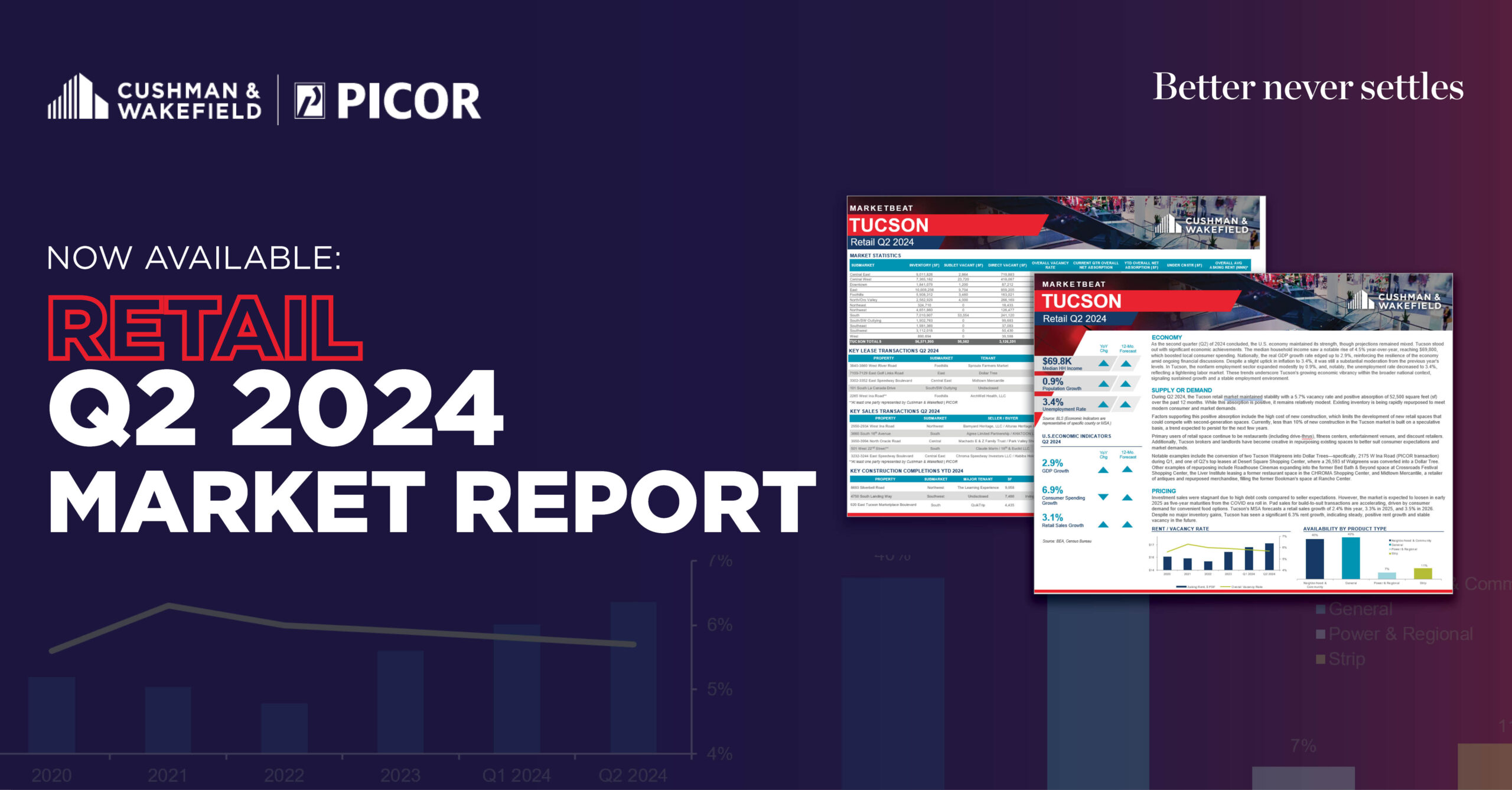To read the full report on Tucson’s retail activity in Q2, click here.
During Q2 2024, the Tucson retail market maintained stability with a 5.7% vacancy rate and positive absorption of 52,500 square feet (sf) over the past 12 months. While this absorption is positive, it remains relatively modest. Existing inventory is being rapidly repurposed to meet modern consumer and market demands.
Factors supporting this positive absorption include the high cost of new construction, which limits the development of new retail spaces that could compete with second-generation spaces. Currently, less than 10% of new construction in the Tucson market is built on a speculative basis, a trend expected to persist for the next few years.
Primary users of retail space continue to be restaurants (including drive-thrus), fitness centers, entertainment venues, and discount retailers. Additionally, Tucson brokers and landlords have become creative in repurposing existing spaces to better suit consumer expectations and market demands.
Notable examples include the conversion of two Tucson Walgreens into Dollar Trees—specifically, 2175 W Ina Road (PICOR transaction) during Q1, and one of Q2’s top leases at Desert Square Shopping Center, where a 26,593 sf Walgreens was converted into a Dollar Tree. Other examples of repurposing include Roadhouse Cinemas expanding into the former Bed Bath & Beyond space at Crossroads Festival Shopping Center, the Liver Institute leasing a former restaurant space in the CHROMA Shopping Center, and Midtown Mercantile, a retailer of antiques and repurposed merchandise, filling the former Bookman’s space at Rancho Center.
Investment sales were stagnant due to high debt costs compared to seller expectations. However, the market is expected to loosen in early 2025 as five-year maturities from the COVID era roll in. Pad sales for build-to-suit transactions are accelerating, driven by consumer demand for convenient food options. Tucson’s MSA forecasts a retail sales growth of 2.4% this year, 3.3% in 2025, and 3.5% in 2026. Despite no major inventory gains, Tucson has seen a significant 6.3% rent growth, indicating steady, positive rent growth and stable vacancy in the future.






